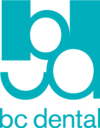Exactly how many Australians suffer from obstructive sleep apnoea (OSA) is difficult to tell, but it’s thought that around 9% of women and 25% of men in Australia have clinically significant OSA. As the waist lines of Australians increases, so too does the prevalence of obstructive sleep apnoea and the health issues that come with OSA.
Despite this, a large proportion of Australians with OSA remain undiagnosed and untreated.
Facts:
OSA is more common in males than females
OSA becomes more common with age
Mortality rate increases according to the severity of sleep apnoea
Even mild OSA results in a 2.5 increase in mortality rate
Treating OSA correctly eliminates mortality risk from OSA.
OSA is a known cause of sudden death at night time.
Patients with sleep apnoea are 4 to 9 times more likely to be involved in a motor vehicle accident.
So what is Obstructive Sleep Apnoea (OSA)?
It is important to realise that Sleep Apnoea is not just snoring or feeling tired during the day – it is a serious medical condition. It not only affects your sleep but can severely impact your health and your quality of life.
The most common form of Sleep Apnoea is called Obstructive Sleep Apnoea (OSA). Obstructive Sleep Apnoea occurs when the walls or muscles of the upper airway (including the tongue, soft palate etc) relax in such a way that they collapse and block the airway during sleep. The subsequent interruption of air supply to the lungs is called an apnoea.
An apnoea event can last up to a minute or more. In severe cases apnoeas may occur hundreds of times per night. During the Apnoea there is generally no sound which is particularly noticeable if the patient has been snoring previously. However, sometimes your partner may hear a choking noise.
Apnoeas induce strong arousals which have severe effects on the body. During each interruption the oxygen circulating in the blood decreases as no new fresh air is able to replenish what has already been used by the body. This reduces the supply of oxygen to vital organs such as the brain and heart.
The brain soon realises there is a problem and that the body is struggling to breathe and trying to get air past the blockage.
The brain “wakes up” briefly to shock the cardiovascular system in order to clear the airway and start your airflow again. A sleeping partner may notice you moving in the bed and suddenly gasping for air. This cycle of breathing, then an apnoea and then a sudden gasping for air can happen hundreds of times per night. The patient may not remember waking but your brain and body certainly start to feel the effects of these disturbances.
Effects of apnoeas include, disturbed sleep and resulting tiredness and stress, increases in heart rate and blood pressure and changes to your body’s normal metabolic processes. If this is not rectified you may develop serious long-term medical problems such as hypertension and diabetes.
If you are concerned about sleep apnoea, Dr Carlo Roberts has a special interest in this area and is happy to provide guidance and if necessary suggest a sleep study and or applicae to assit. Call bcdental on 9589 2675
The STOP-Bang questionnaire is used to screen patients for obstructive sleep apnoea helps to identify your risk of having sleep apnoea.
Snoring ?
Do you Snore Loudly (loud enough to be heard through closed doors or your bed-partner elbows you for snoring at night)?
Tired ?
Do you often feel Tired, Fatigued, or Sleepy during the daytime (such as falling asleep during driving or talking to someone)?
Observed ?
Has anyone Observed you Stop Breathing or Choking/Gasping during your sleep ?
Pressure ?
Do you have or are being treated for High Blood Pressure ?
Body Mass Index more than 35 kg/m2 or greater than 28?
Age older than 50 ?
Neck size large ? (Measured around Adams apple). For male, is your shirt collar 17 inches / 43 cm or larger? For female, is your shirt collar 16 inches / 41 cm or larger?
Gender = Male ?
If you answer YES to 3 or more questions intermediate or higher risk of having Obstructive Sleep Apnoea. It is worth seeking a medical opinion
STOP BANG SCREENING SURVEY; Modified from Chung F et al. Anesthesiology 2008; 108: 812-821,


